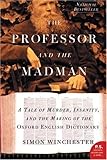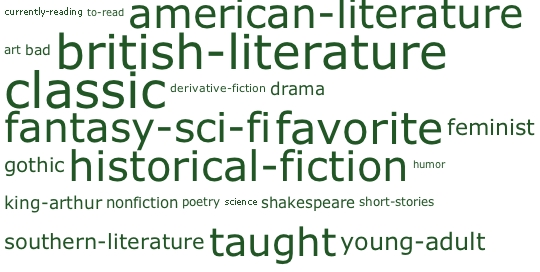 My British literature students are (I hope they are, at any rate) reading Simon Winchester’s The Professor and the Madman: A Tale of Murder, Insanity, and the Making of the Oxford English Dictionary as part of their summer reading assignment. If they enjoy it half as much as I did, I will consider it a great success. The story is enthralling. Winchester examines the relationship between Dr. W. C. Minor, an American Civil War veteran who was committed to Broadmoor Criminal Lunatic Asylum after murdering a man in the street, and James Murray, for many years the chief editor of the OED.
My British literature students are (I hope they are, at any rate) reading Simon Winchester’s The Professor and the Madman: A Tale of Murder, Insanity, and the Making of the Oxford English Dictionary as part of their summer reading assignment. If they enjoy it half as much as I did, I will consider it a great success. The story is enthralling. Winchester examines the relationship between Dr. W. C. Minor, an American Civil War veteran who was committed to Broadmoor Criminal Lunatic Asylum after murdering a man in the street, and James Murray, for many years the chief editor of the OED.
When Murray took the helm at the OED, he solicited help from volunteers who might we willing to look up what he called “catchwords” in their reading and copy quotations. The OED wanted to include quotations to illustrate each word’s use and also to trace the words back to their earliest uses. Considering the seeming disorganization of the affair (to modern eyes) and the unclear instructions volunteers were given, you, like me, will probably marvel that the volunteers were ever any use at all.
Winchester does not flinch from honesty with regard to Dr. Minor’s crime, but he also manages to portray him in a sympathetic light, and I found myself feeling he had, in some measure, been redeemed even if his mind was never to give him any peace.
I highly recommend this book to students of the English language, word lovers (this book is essential for word lovers — those children who used to haul out the dictionary at home and just look up words), history buffs, and anyone who just loves a good yarn.
For my next book, I will return to the Historical Fiction Challenge and read Jane Austen’s Northanger Abbey. If you have followed my progress with Emma in the sidebar under DailyLit, you may notice I will be finishing that book in less than a week’s time. I haven’t decided which DailyLit selection I’ll read next.



